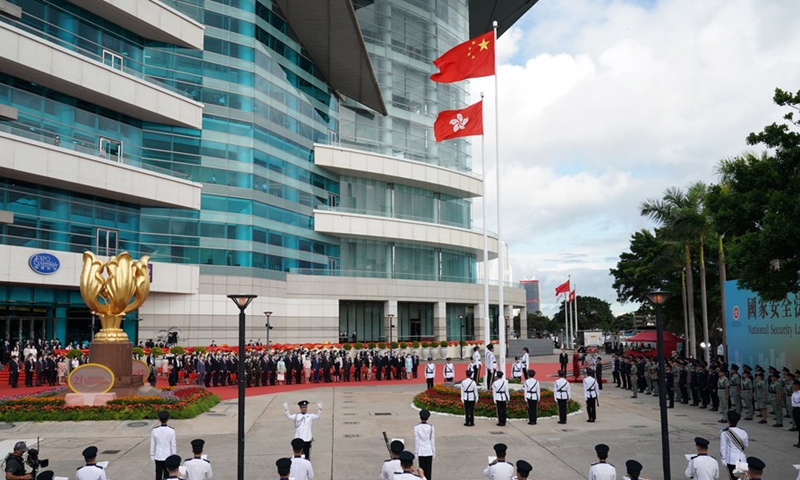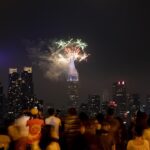Markets more stable, calm following new legislation’s implementation
Not one week after the new national security law came into effect in Hong Kong has the local economy become stable, with local residents voicing their support for the legislation, hoping it would help Hong Kong’s economy recover by stemming the city’s recent social chaos and boosting mainland-HK cooperation.
Chen, a Hong Kong resident who runs a shop in Hong Kong’s Tsim Sha Tsui area, is one such supporters, saying that he felt many Hong Kong residents “heaved a sigh of relief” after the new law took effect.
“When violence swept across through Hong Kong [last year], many residents choked with silent fury. Now with the national security law, we can be rest assured and shop on the streets,” he told the Global Times.
The response from Hong Kong’s markets also confirmed Chen’s expectations. Hong Kong’s benchmark Hang Seng Index rose to 25,373.1 points on Friday from 24427.19 points on Tuesday, when the national security law took effect.
Hong Kong Financial Secretary Paul Chan Mo-po said in an interview with the Global Times that Hong Kong’s stocks, futures and currency markets were all stabilized recently. The Hong Kong dollar was strong, and no large-scale capital outflow had been detected.
Lin Jiang, a professor of economics at Lingnan University College at Sun Yat-sen University, also said he observed that the Hong Kong market was stable and calm in general after the new law took effect, at least much better than last year when Hong Kong was bogged down in social chaos.
People’s anticipation for the new law’s benefits to Hong Kong came at a time when Hong Kong was standing at a critical turning point, after its economy went through a double whammy: the social violence last year and impacts of the pandemic this year.
In the first quarter, Hong Kong’s GDP slumped by 8.9 percent, while the region’s unemployment rate also hit a 15-year-high of 5.9 percent from March to May.
Chen also said that business was difficult for him as a result of social instability and pandemic. “At the beginning of last year, I could sell 6-7 cases of mineral water and beverages each day. Now I can’t sell even one case,” he said, adding that many shops in Tsim Sha Tsui have already shut down.
As Hong Kong’s residents urgently hoped the local economy would turn around, many hoped the new security law can speed up the process by offering a stable social environment and ushering in support from the mainland economy.
“The recovery of the Hong Kong economy will only happen when social order resumes and stability is widely expected, and when law guarantees that those who damage social safety won’t escape unpunished,” Lin told the Global Times.
Business people and experts also hoped that the Hong Kong-mainland’s economic cooperation can be enhanced with help of the new legislation.
Thomas Yeung Kwan Ho, Deputy Dean of Futian School of Finance, Academic Director of City Think Tank, said that he expects ties between the mainland and HK to be closer after the management of social risks improves with help of the new legislation.
“The law will help strengthen the power of mainland capital in Hong Kong, raising possibilities for HK and mainland companies to cooperate in areas like the Belt and Road Initiative and even maritime economy, ” he told the Global Times.
Chen also said that most Hong Kong residents hoped travel between Hong Kong and mainland can resume as soon as possible. “Only when Hong Kong resumes communication with the mainland can tourism and other sectors reboot in Hong Kong, and the Hong Kong economy can genuinely recover,” he said.
Paul Chan Mo-po also noted that Hong Kong’s advantage in becoming a global financial hub has not changed and will only strengthen in the future, no matter what measures Hong Kong faces from the US in the future. “The world economic center is shifting from the West to the East. The trend is irreversible,” he said.
A flag-raising ceremony is held by the government of the Hong Kong Special Administrative Region to celebrate the 23rd anniversary of Hong Kong’s return to the motherland at the Golden Bauhinia Square in Hong Kong, south China, July 1, 2020. (Xinhua/Li Gang)



